We talk to Pepe Barguñó about how Thinking Mu was born, what values are behind the brand and how they have managed to be present in almost 30 countries. He also invites us to reconnect with the Mediterranean essence and a healthy lifestyle where community and nature are the fundamental pillars.
It is half past eleven in the morning. We arrive at Thinking Mu with the certainty that this space of design and comfort can only generate a fluid and friendly conversation. Pepe enters through the door, greets us and we prepare to sit down in the circular space at the end of the shop. An environment designed by the architect Isern Serra that breathes design and art, two of the values of this Barcelona fashion brand.
In the interview we are accompanied by Bé, a border collie who is hard not to get attached to. Pepe confesses that he goes everywhere with her.
There are many questions ahead: where did the impulse to create a company in the competitive world of fashion come from, how did they manage to create the first sustainable Spanish fashion brand and what values govern Thinking Mu. They have just opened a shop in Madrid and will soon be opening in Paris. We talk about all this and much more in an in-depth conversation where the essence of the brand is intimately connected to that of an entire culture: the Mediterranean.

Thinking Mu shop in Barcelona. Editorial credit: Salva López.
How does one go from training in sociology and botany to creating a company?
I entered fashion seeing the opportunity to have a platform with the capacity to explain many things. It’s also something I really like, even though it generates a certain personal conflict: I ask myself why I like this, given how badly it’s done. From there, with my training and interest in the world of botany and sociology, I started to work in a very intuitive way. Now this concept has a name: sustainability, and it is no longer a driver for a brand, but almost an obligation. However, at that time we had to explain what we were doing.
Both disciplines evoke a certain concern for how life works. Have you always been interested in that deeper part of everything around you?
This is something I’ve talked about a lot with friends: when you philosophise, you think about things that are not so everyday. I think everyone has a personal crisis at some point: what are you doing here, what are you good for, what can you use your talents for… In a moment of maturity, in your early twenties, this awakens you, you get angry with the world and you want to change everything. That’s the beginning of this protest.
“With my training and my interest in the world of botany and sociology, I started to take a very intuitive approach. Now that concept has a name: sustainability”
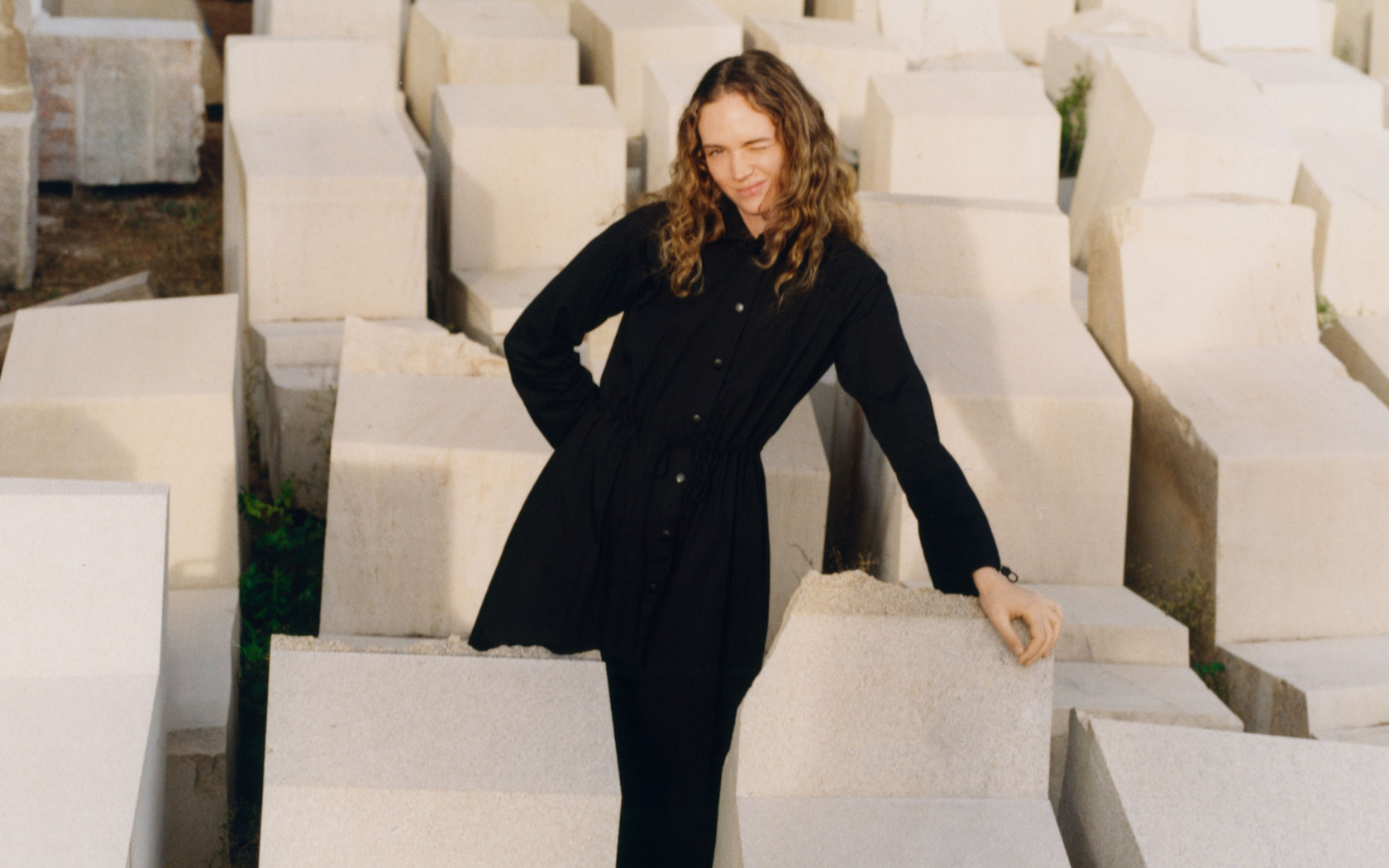
Autumn-winter collection 2024-2025 by Thinking Mu. Editorial credit to the brand.
I had previous experience in the textile world working for other brands. Added to this was my interest in travelling and getting to know other cultures, as well as my appreciation of craftsmanship in the service of mass consumption. All of this began to give meaning to what in the end became Thinking Mu.
What was the beginning of Thinking Mu like?
First it started as Intrépida Mu, which was a brand that was angry with the world, just as I was. Its slogans were very judgmental and negative, and the evolution has been becoming more and more understanding. You put that anger aside to start explaining the same thing in a much more positive way. I found in this project an engine with which I could get up every day with a lot of passion and in which the hours didn’t count. In 2007 we launched our first collection.
As a result of that moment and learning from the mistakes made, Thinking Mu was born in 2010 as a very positive brand that talks about sustainability, ecology and fair trade in a very nice way.
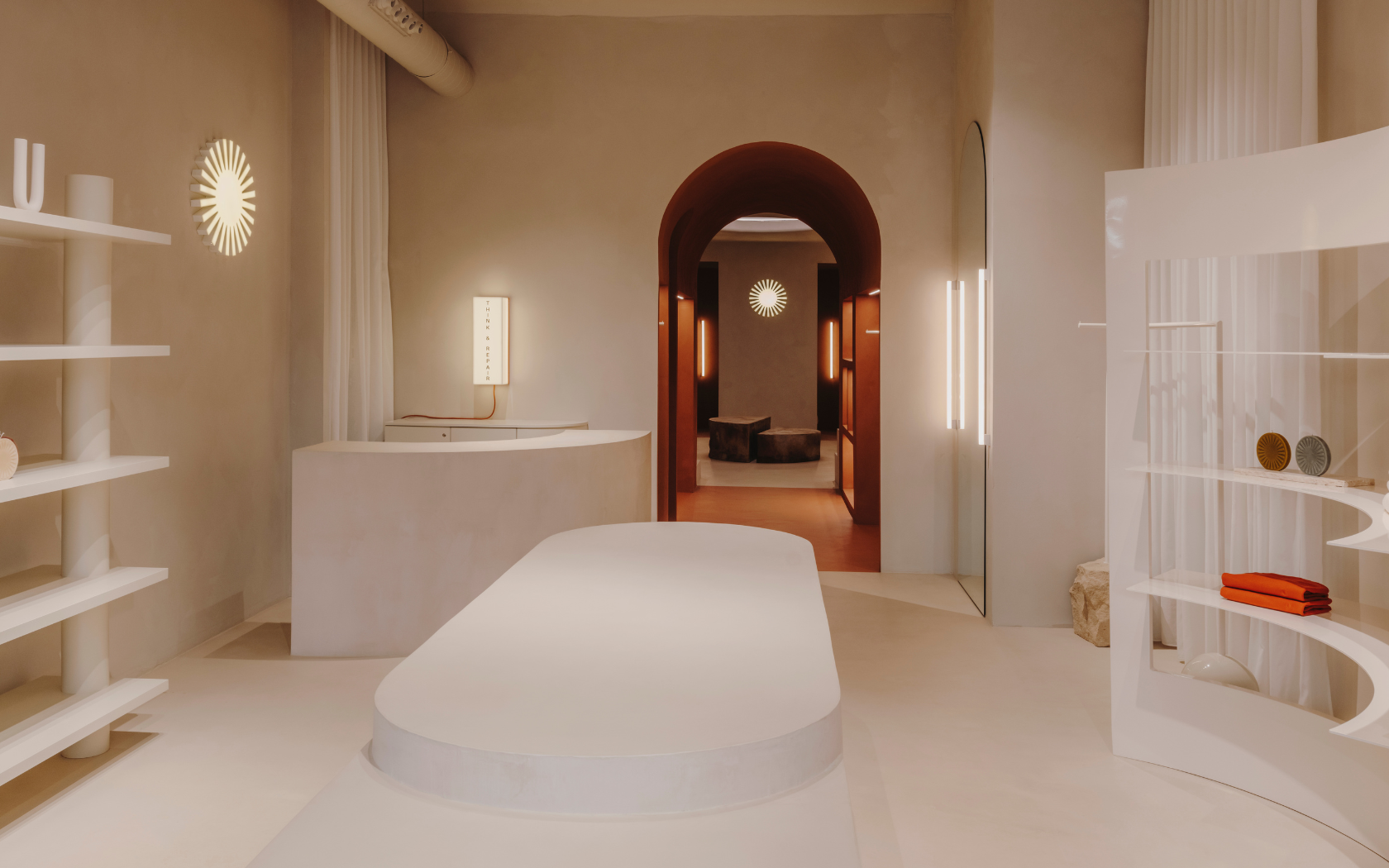
Thinking Mu shop in Barcelona. Editorial credit: Salva López.
‘It started out as Intrepida Mu, a brand that was angry at the world, just as I was. The evolution has been becoming more and more understanding’.
Fifteen years later, you are present in more than 20 countries with your own ecommerce and marketplace. Did you expect this leap?
We are present in almost 30 countries, mainly thanks to the multi-brand shop channel. Our own channel is always more complicated, although it allows us to explain who we are much better.
I had always fantasised about the idea of having a lot of talent around you and being able to delegate all the ideas I had. It’s very nice when suddenly everything you dreamed of comes your way and you can count on it. I have always had a lot of confidence in my ability, but above all in my intuition. For a long time we have had a very firm belief in how society and the world would evolve, and that has never taken us off our path. That’s not easy to sustain, because you’re not just surfing a wave, you’re creating it. Everyone who has joined the project has done so with all their heart and soul.
‘Thinking Mu was born in 2010 as a very positive brand that talks about sustainability, environmentalism and fair trade in a very nice way’
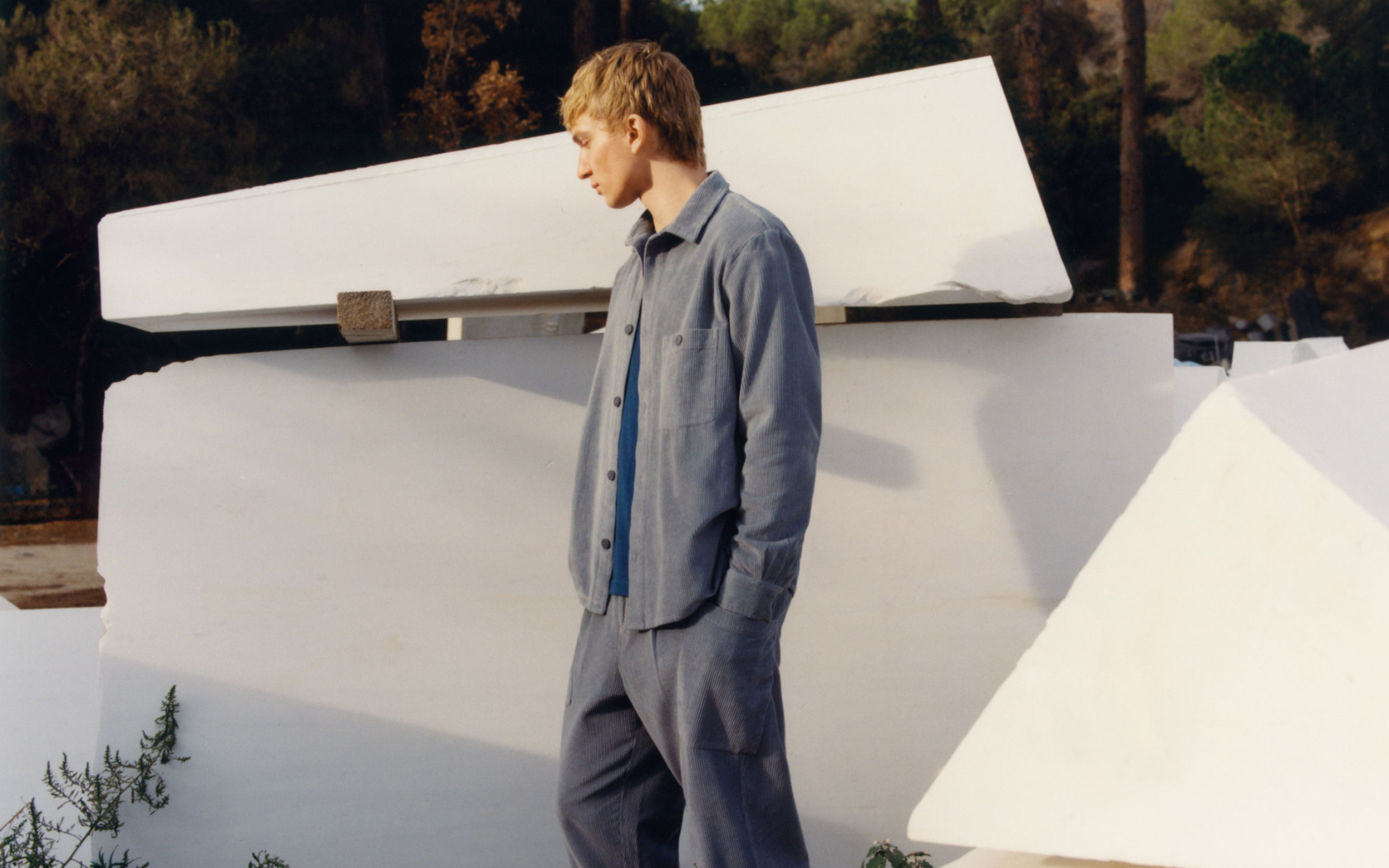 Autumn-winter collection 2024-2025 by Thinking Mu. Editorial credit to the brand.
Autumn-winter collection 2024-2025 by Thinking Mu. Editorial credit to the brand.
What values are the soul of your brand?
Its motto is “A contemporary Mediterranean brand with a twist”, and for me it is defined by the essence of Mediterranean culture, which has always been health, living outside, long days, seeing the sun and greeting it, gratitude, community and a coherent rhythm of life. For me, respect for the people around you means the same as sustainability and the relationship with your suppliers; it is a universal value. All of that is summed up very well in the idea we have of a company.
We feel very comfortable with this philosophy: because we are, because we practice it every day and because our families have been teaching us it for a very long time. It is not being Mediterranean as a marketing tool but as an essence that leads us to a lot of values that we share and in which we feel very comfortable. We were born into a culture that has all this, why shouldn’t we promote it and explain it?
Obviously globalisation and the cultural mix is always welcome and has transformed local cultures in some way, but I believe that in the Mediterranean there are still many things that are maintained over time and that we really feel in our villages and throughout the geography, both inland and by the sea.

Flowers to the People collection, made with all-natural pigments. Editorial credit to the brand.
In addition, there are other things that move us a lot, such as the world of art and music with the Thinking Music Festival. We consider ourselves a very arty brand in terms of photography, music, illustration… Even in the fabrics and textures we create. We control the hemp, the fabric, the biodegradable dye… And obviously the print and the printing. All of this involves a lot of time but at the same time a knowledge that allows us to be quite unique in our creations.
‘The brand’s slogan is A contemporary Mediterranean brand with a twist, and for me it defines the essence of Mediterranean culture, which has always been health, living outside, long days…’
Do you know where the materials you work with come from?
Yes, we tell our suppliers of the final garment where they have to buy the fibre or yarn. We go as far as choosing the yarns.
Apart from organic fabrics, what other types of materials are you using to replace raw materials?
The most we can aim for is to reduce, because we are aware that we rob the soil of energy, fibre and resources. The way you can give back is through regenerative projects, where we offset the impact.
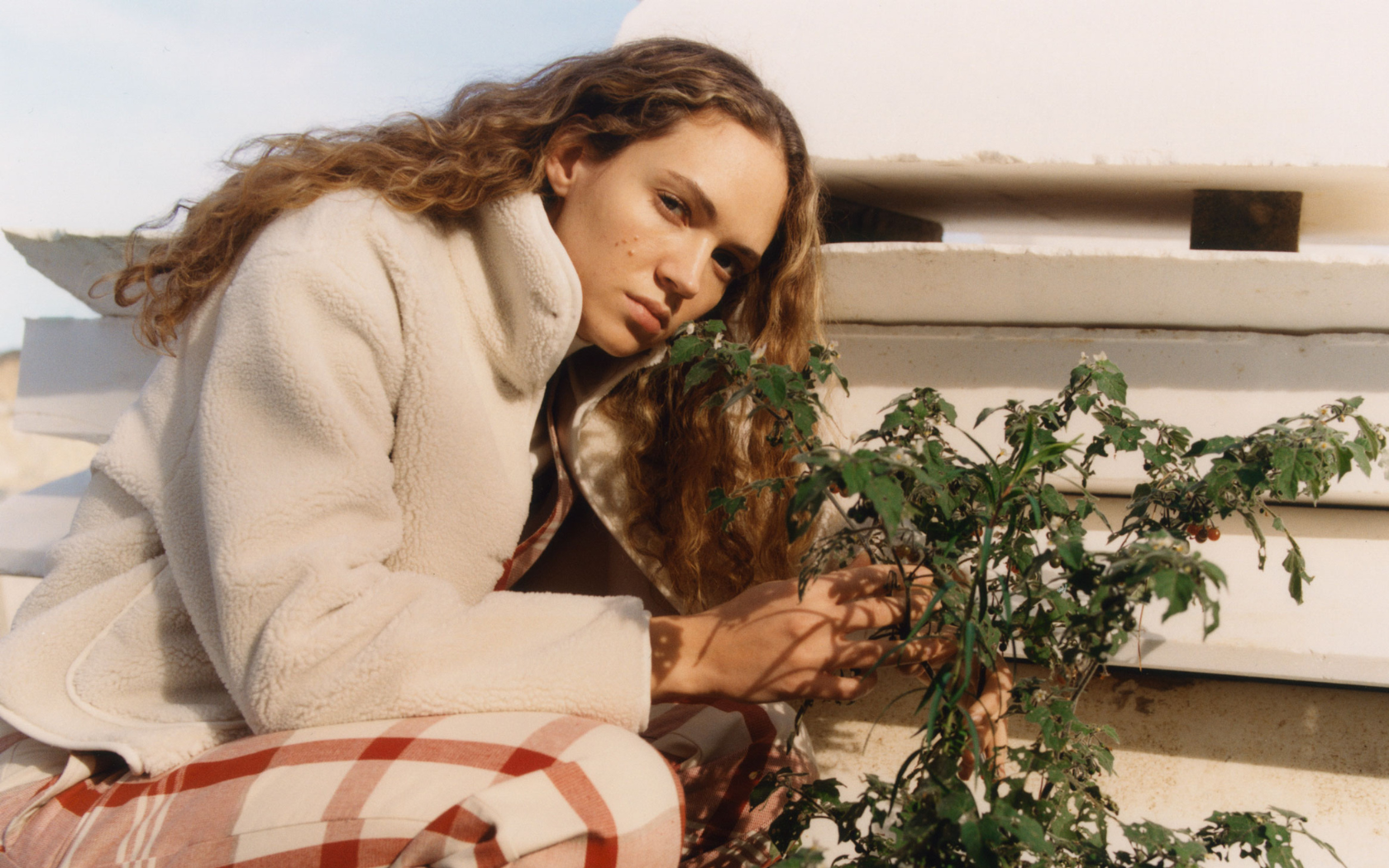 Autumn-winter collection 2024-2025 by Thinking Mu. Editorial credit to the brand.
Autumn-winter collection 2024-2025 by Thinking Mu. Editorial credit to the brand.
Focusing on textiles, my first thought is that if I have to compensate, I’d better start reducing what I take from the land. For example, hemp is used for different applications and does not need water or pesticides. It is also a plant that compacts a lot of CO2 during its lifetime. And it is one of the plants that we saw that could work for us for that purpose.
Promoting local talent and generating your own network is one of the aims of the brand. In this sense, what initiatives are you planning to carry out in the short-medium term?
We are teaming up with other companies for future regenerative projects, but that’s something I don’t want to talk too much about yet.
‘The most we can aspire to is to reduce, because we are aware that we rob the soil of energy, fibre and resources’
Today the term ‘community’ is quite interesting. The community of new brands is digital. However, in our case, both because of our own origin and because of our sensibility and generation, we are not a brand capable of creating a huge digital community. We want a community, but a different one: through local events and more authentic dynamics that allow contact.
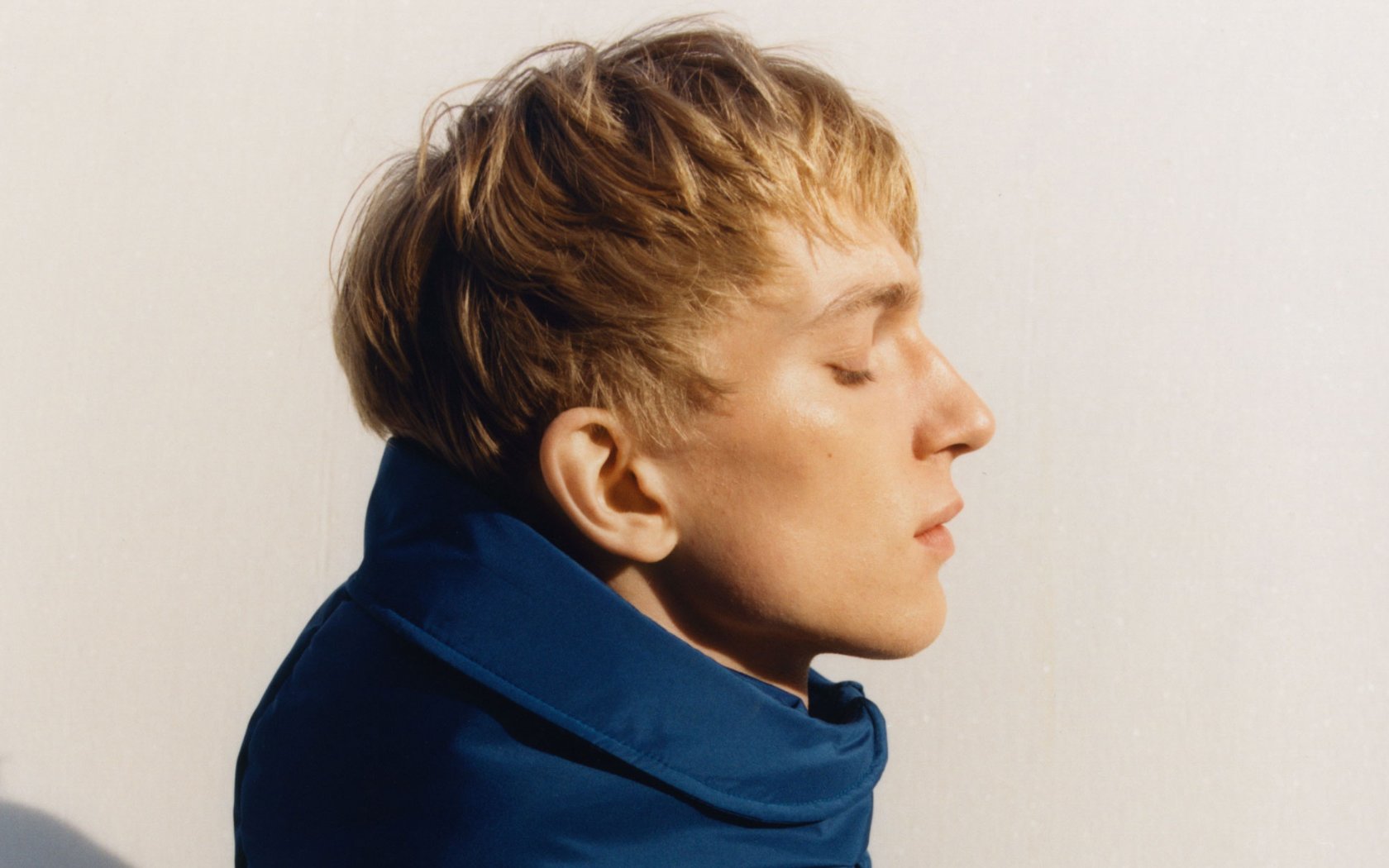
Autumn-winter collection 2024-2025 by Thinking Mu. Editorial credit to the brand.
Of course we have a digital community, but we are not slaves to a logo. So people value what we do and how we do it, and not so much the tribe of belonging to one group or another. That’s our model, and luckily we see that there are a lot of people who understand us. I believe that the future of companies is to seek a common good by bringing their problems together, beyond finding their objective.
Speaking locally, do you think that your relationship with the Empordà has influenced the way you work and conceive projects?
Absolutely. We are the fruit of our habits: both of what they have done with us before we can make decisions and of the choices we have made in terms of what and who we surround ourselves with. For me it has been a choice to be in the field as much as possible.
Even so, I don’t forget that the company requires my constant presence here in Barcelona. Luckily we have a wonderful city, but I need a lot more greenery and less noise; moments of boredom and calm.

Pepe Barguñó in one of his favourite areas: Empordà. Photo courtesy of Thinking Mu.
What inspires you beyond that nature?
I think about it a lot, but I get a lot of inspiration from documentaries, creativity, books and talking to people I respect a lot. I also get a lot of inspiration from talking to my partner. And my dog, who always comes with me.
How do you see yourself and Thinking Mu in 15 years’ time?
I fantasise about it being a global brand in the sense that it doesn’t just make clothes: that it gets into agricultural projects and gets people to change the perception of what a brand is. I’m trying to make it happen.
__
The more personal side…
What is the style you like the most?
Minimalism in general.
A specific artist
My partner.
Do you collect anything?
No.
A country you would go back to 100 times
Costa Rica. And even if it’s not a country, to Formentera, because I’m from there.
A pending trip
To go back to Japan again and again. And Patagonia.
A daily habit
My morning coffee.
A hobby
Running.
A colour
Blue.




